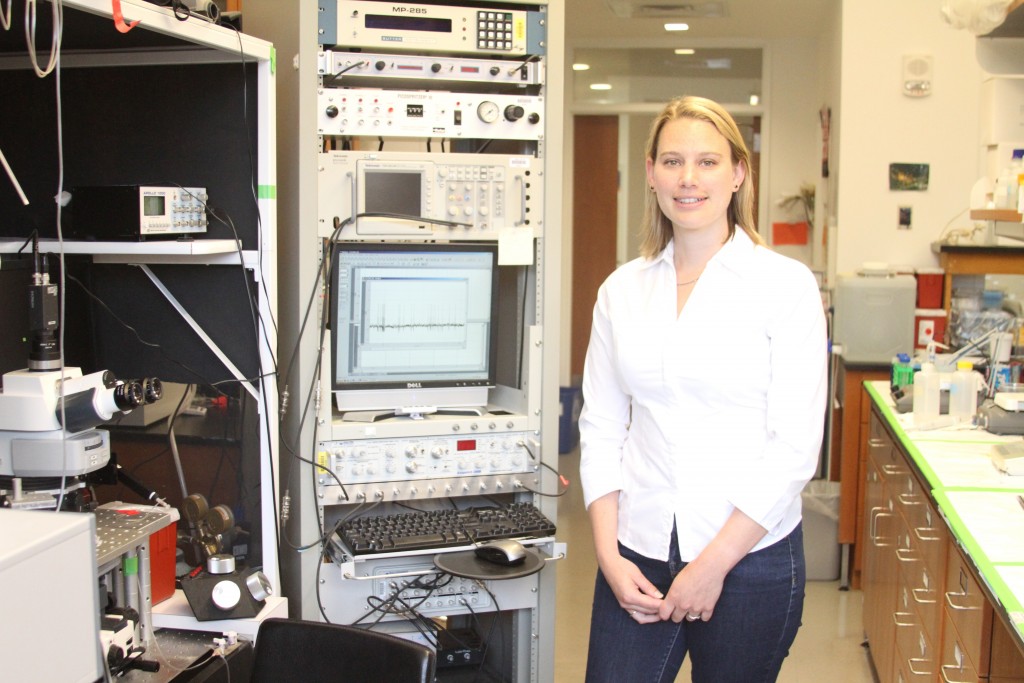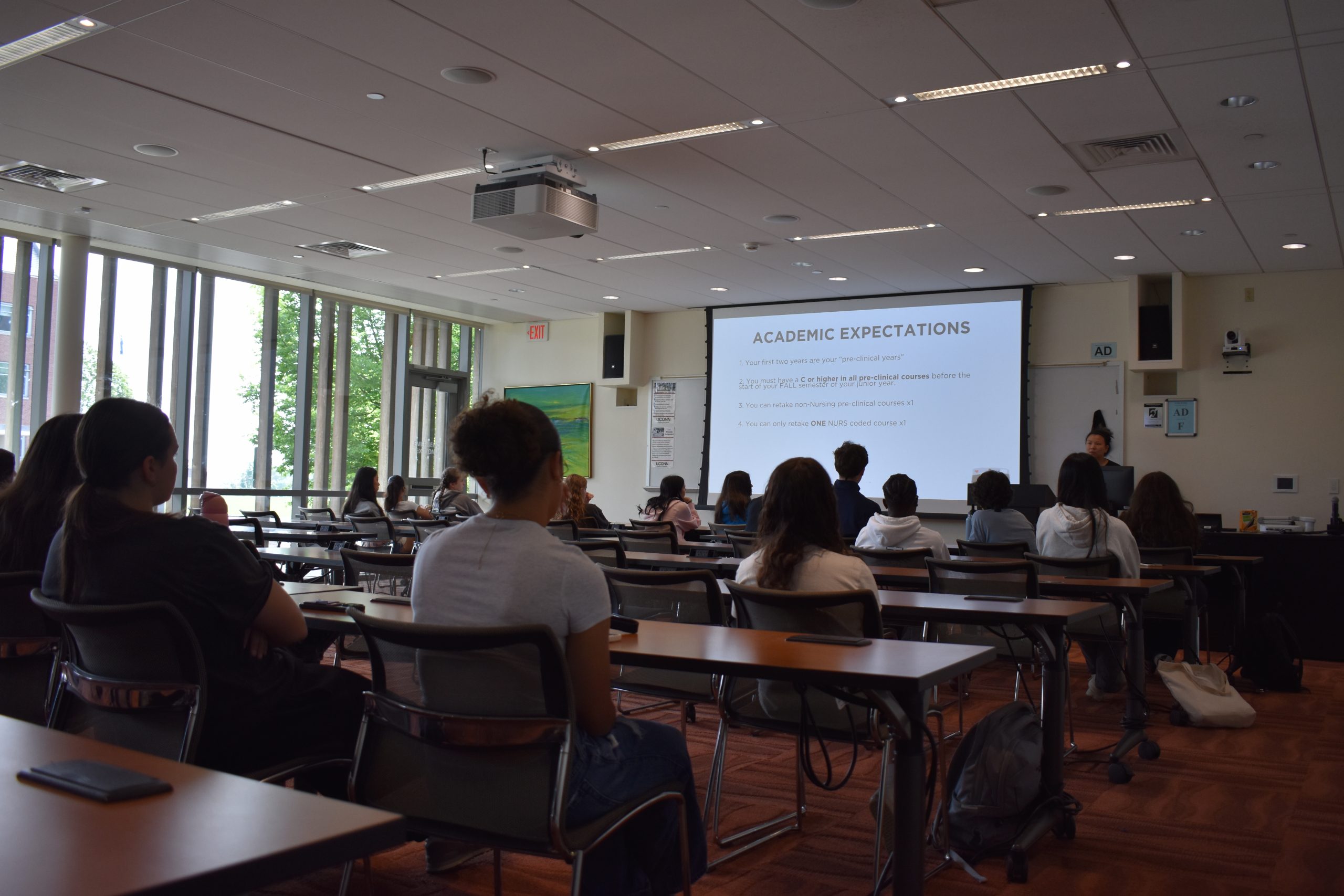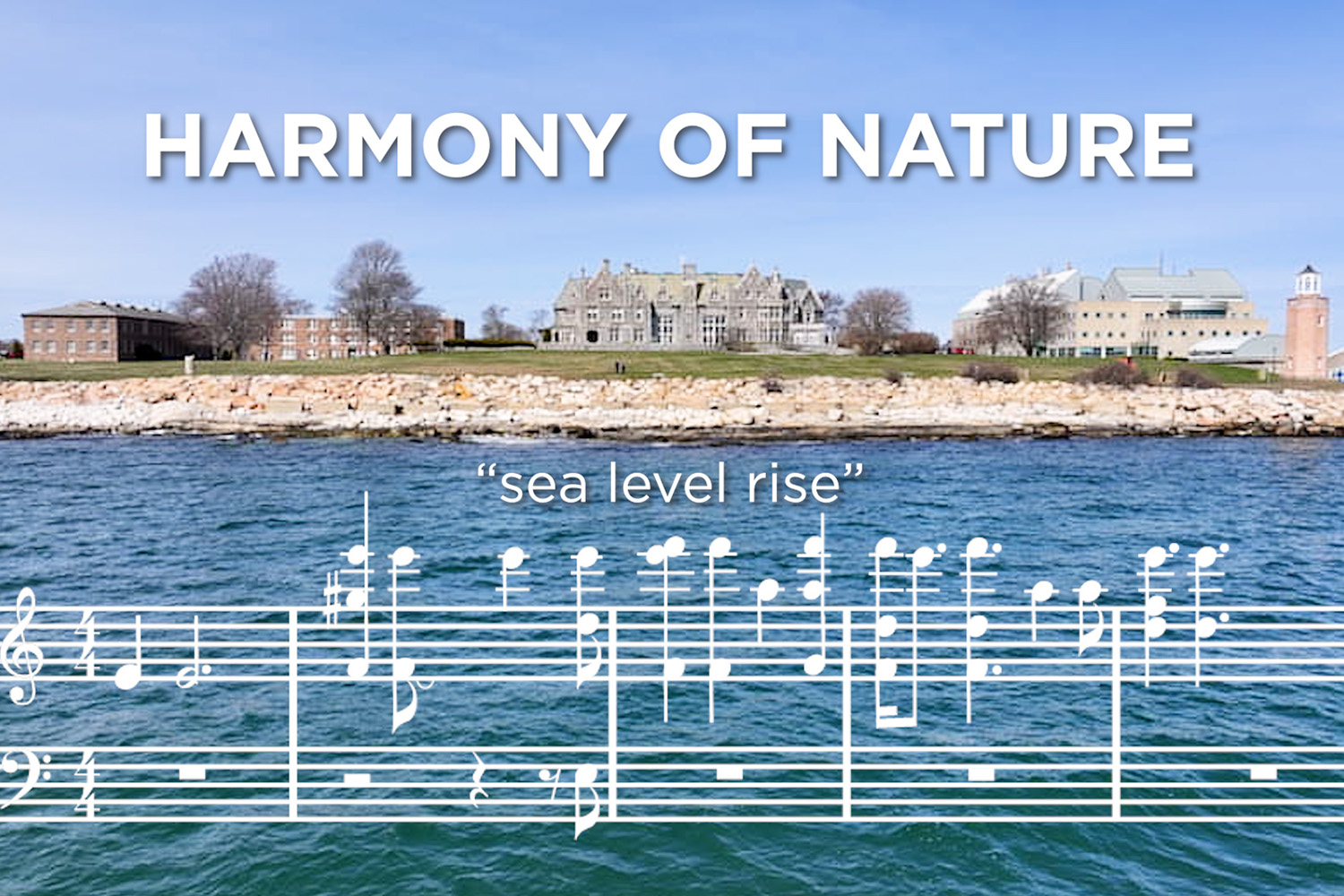Virginia Hawkins, Ph.D., Postdoctoral Scholar, Department of Physiology and Neurobiology.
As a post-doctoral scientist my research focuses on neuron-glial interactions involved in one of the most fundamental processes to life; breathing. Central chemoreception is the mechanism by which the brain controls breathing. Despite its importance, the cellular and molecular basis for chemoreception and its role in the drive to breathe has not yet been fully elucidated. In particular, a subset of brainstem astroglial cells have been shown to regulate chemoreception, yet virtually nothing is known regarding the molecular identity of these cells. I recently received a postdoctoral fellowship from the National Institutes of Health to fund my work here at UConn in Dr. Dan Mulkey’s lab (Department of Physiology and Neurobiology) that seeks to define the genetic profiles of functionally characterized individual astrocytes from brainstem respiratory centers. This work will not only elucidate the unique characteristics of these specialized cells, but will also provide a foundation for investigating the functional heterogeneity of astrocytes in all regions of the brain. The project collaborates experts from within the PNB Department with Professor Akiko Nishiyama as a co-sponsor, and Dr Craig Nelson and his team from the MCB Department as key collaborators.



